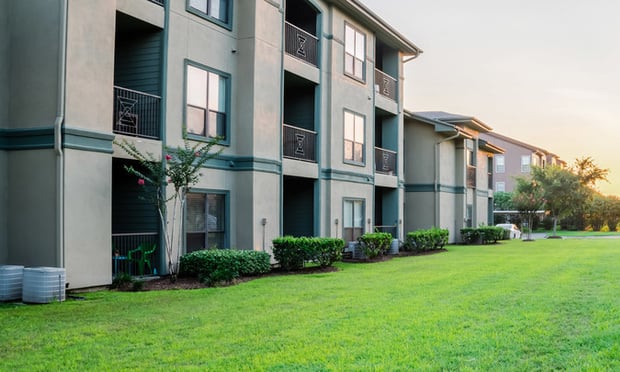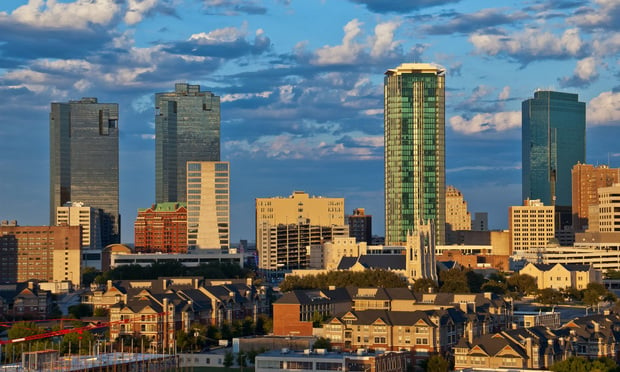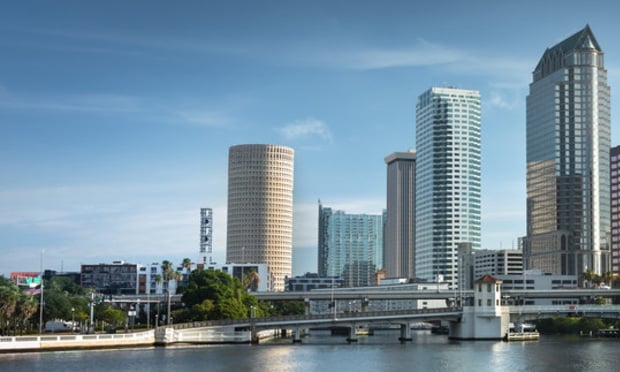"Some we know are going to be offering additional sites, but they will be asked to make proposals for this site too," A.C. Gonzalez, assistant city manger, tells GlobeSt.com. "This is putting us in a more advantageous situation than in the past because we have what we feel is the prime site under our control." The site is a Young Street parking lot for more than 1,500 vehicles and right across the street from the one-million-sf convention center and Dallas-Area Rapid Transit's light-rail station. The city put up $500,000 for the option, which expires Sept. 30.
Putting in dibs to make proposals are FaulknerUSA of Austin, Chicago-based Jones Lang LaSalle, Hines of Houston and Dallas-based developers Woodbine Development Corp., Matthews Southwest and the Beck Group. In 2004, Woodbine earned the city's approval to be the convention center hotel developer, but the exclusive agreement expired in 2005.
If the new bid succeeds, the convention center hotel could come on line in 2012 based on a 30-month construction schedule. "By May, we should have a clear path of what we need to do to make this happen," Gonzalez says. The vision, for now, calls for the hotel to sit on half of the tract and the balance built out with ancillary retail and entertainment space. "That's another significant difference in what we had in the past," he says. In addition, he says the convention center too needs freshened up and more meeting rooms created.
[IMGCAP(2)]Michael H. Anderson, the Dallas partner of Cincinnati-based Chavez Properties, stresses that the city has only optioned the site, but it's the first time through the years that has happened. "It's not unusual for deals to take a long time, but this particular deal has taken us about 20 years," he says. "This time, it's got the best chance ever. The difference this time is everyone is on board."
Chavez Properties' MO is to buy land, build and operate parking lots and sell "when the highest and best use comes at the right time," Anderson says. The company once owned more than 40 acres in the Downtown, but it's now down to 20.
Dallas Mayor Tom Leppert has ticketed the convention center hotel to be one of his signature projects. Unlike four years ago, city leaders didn't start by asking developers for turnkey deals. Instead, they're starting with a site on the convention center's doorstep.
"The reason why we made this deal with the city, and we went under this option, is to help the city facilitate this," Anderson says. "The fear was they would build it in the wrong place. People and developers make mistakes and can build in the wrong location."
Anderson says financing options and the political climate also are working in the deal's favor. "The time's right. We're at a bit of a critical mass--the financing market's right and the political timing is there," he says. "I think the stars are aligned at this time."
Heather M.D. Small, analyst for Portsmouth, NH-based Lodging Econometrics, says Dallas' in-town areas have 15,600 rooms, with 817 more under construction in five projects that will deliver in the coming year. In contrast, there are 17,000 rooms in Atlanta's Downtown, 33,000 in Chicago and 16,700 in Boston. And citing Smith Travel Research of Hendersonville, TN, Small reports Dallas and Norfolk, VA are the only metros without dedicated convention center hotels in the nation's Top 25 cities.
According to PKF Consulting Inc.'s Texas Trends, there are 6,546 rooms in 18 hotels in the Dallas CBD proper. Randy McCaslin, PKF vice president, says 2007 occupancy averaged 62.5% and the average daily room rate was $166. Occupancy dipped 0.6% from 2006, but ADR picked up $10 per night in the past year.
"It's a tough situation for Dallas. Yes, they definitely need a convention center hotel, but they need to revitalize the Downtown some more," McCaslin says. In order to be a first-tier convention city, he says Dallas needs at least a 6,000-room block to win business. Not having a dedicated hotel, he says "puts them at a disadvantage."
Dallas' in-town hotels are "scattered over a large area and that's inconvenient to conventioneers," PKF senior vice president John Keeling points out. "Building something Downtown like a convention center hotel will add a whole new dimension and make them more competitive for conventions."
Jennifer Vey, a fellow in urban work for Washington, DC-based Brookings Institution's Metropolitan Policy Program, says a convention center hotel is a sustainable project if it's part of a larger picture. "The success of a convention center can vary from place to place," she says, "but I don't think any city can claim a convention center has turned their Downtown around. There is no doubt that convention centers and hotels aren't silver bullet strategies."
Dallas, though, has turned the corner on its revitalization initiatives, with projects of all types being added to the skyline. "We have been making great strides in reviving our Downtown. Some of those projects are just phenomenal," Gonzalez says. "But, we recognize that this area of Downtown has not received the attention it needs to be part of the renaissance. And, we recognize this is not a silver bullet to attract convention business, but we also recognize that it's an important part of us getting more competitive."
Want to continue reading?
Become a Free ALM Digital Reader.
Once you are an ALM Digital Member, you’ll receive:
- Breaking commercial real estate news and analysis, on-site and via our newsletters and custom alerts
- Educational webcasts, white papers, and ebooks from industry thought leaders
- Critical coverage of the property casualty insurance and financial advisory markets on our other ALM sites, PropertyCasualty360 and ThinkAdvisor
Already have an account? Sign In Now
*May exclude premium content© 2024 ALM Global, LLC, All Rights Reserved. Request academic re-use from www.copyright.com. All other uses, submit a request to [email protected]. For more information visit Asset & Logo Licensing.








